How Covid has changed where we want to live
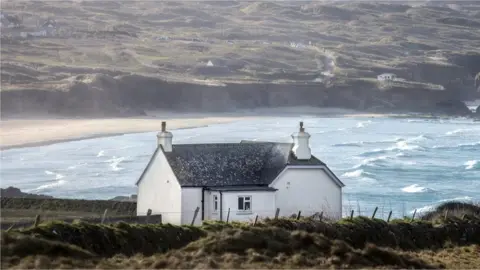 Getty Images
Getty ImagesWanted: a place by the sea to call home, with plenty of space, a garage and a garden.
The coronavirus pandemic has changed the kind of property we want to buy or rent but, as lockdown restrictions ease, there are signs of a return to the old priorities.
Cornwall has overtaken London this year as the most searched for location on Rightmove, according to analysis by the property portal for the BBC. Neighbouring Devon sits in third, and Dorset has risen from 20th to 10th.
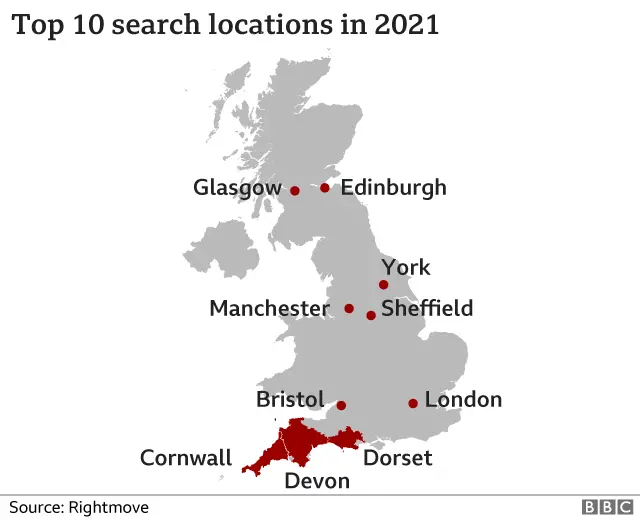
Many have turned a long-term plan to escape to the country into a short-term reality. Although the market slowed considerably during the height of the Covid outbreak, sales then lifted at a faster rate in rural areas, Rightmove says.
The popularity of a rural or coastal life, confidence in improving broadband, and the attraction of indoor and outdoor space are linked directly to the lifestyle lockdowns have forced upon most people in the last year.
Consider too that the word "garage" was the most popular keyword on property searches on the portal in the last nine months, providing more evidence of the shifting sentiment.
This appears to have been driven by owners wanting to convert a garage into a permanent office, to allow them to work from home, or into a gym or workshop.
It may be old-fashioned, but some may actually want to park their car in it.
Dreams of a more secluded lifestyle led to a huge rise in interest in areas such as the Isle of Skye, Braemar in the Cairngorms National Park, and coastal areas of Devon and East Sussex.
But it is Cornwall that has led these seaside property searches, and specifically Truro and Looe.
 Marshall Moore
Marshall MooreAmong those looking, and then moving, during the pandemic months was Marshall Moore.
The 50-year-old spent the last 15 years living in the mega-cities of Seoul and Hong Kong before moving to just outside Truro.
"It is such a relief. It is gorgeous and cultural and, in some ways, like San Francisco - but with more wind," says Mr Moore, an American academic who teaches creative writing.
He was given the chance to move owing to his job, but is clear about the benefits of the location.
"There is openness, space, fresh air, it is calm and there's the mild weather," he says. "We can also afford to live in an actual house rather than an apartment. I feel incredibly lucky."
He is now waiting for his husband to join him, and they have plans to buy. He is renting in the meantime but was shocked by the shortage of properties available.
 Emma Ward
Emma WardThat is no surprise to Emma Ward, of Cornwall estate agents Goundrys.
"We've had our best year in a long time. There haven't been enough hours in the day," she says. "This was even busier than the peak of the market in 2007."
She says older people are moving closer to family, younger buyers are looking for a good place to start a family, and undoubtedly people have been moving out of the big cities of London, Bristol, Birmingham and Manchester.
"There are lots of people coming here to buy, because they know they'll only need to go to London once or twice a month," she says.
The homes she says are high in demand, but low in supply are four to five-bedroom detached houses, costing between £500,000 and £700,000.
That is backed up by the Rightmove data, which reveals that five-bedroom detached homes have seen the biggest rise in sales in the last year.
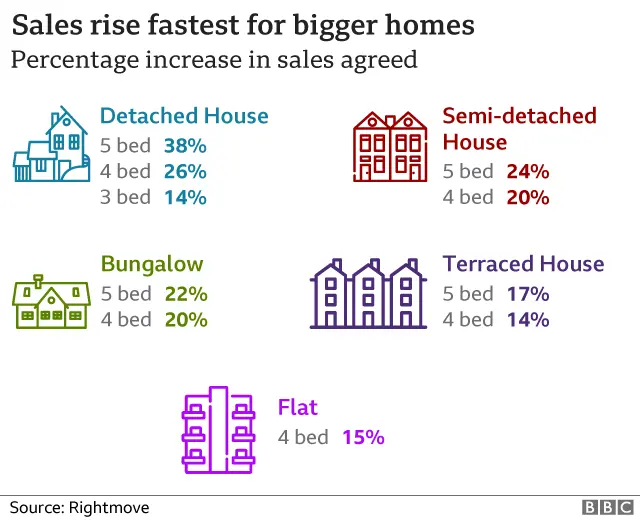
Stamp duty holidays may have helped financially, but socially the inspiration includes more room, space away from neighbours, and working from home.
Rightmove's director of property data Tim Bannister says: "More space has always been the most common reason for people moving home, but the evolution for many from balancing their laptop on the end of a bed last March to making an office a permanent addition to a home has led to a need for even bigger homes than before."
That has also been seen among tenants. Demand for rental properties has clearly shifted away from city-centre flats to two-bedroom houses, preferably with a garden.
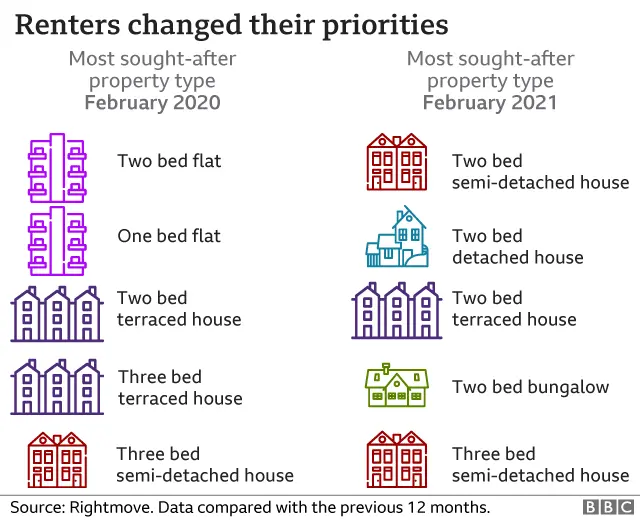
That has led to a double-digit fall in rent for central London flats, Rightmove says, but increases of between 15% and 20% outside of big cities - in towns such as Bury and Halifax.
Renters can be more nimble, often moving at shorter notice and with less upheaval than buyers.
With lockdown restrictions lifting, and businesses making plans to bring people back to workplaces, there are signs of tenants moving back into London, to take advantage of lower rents.
Rightmove says renters are now searching for more in central zones one and two, compared with greater demand in zone three in August.
Emma Ward, of Goundrys in Cornwall, expects a gradual return in demand for city dwelling among buyers too.
"This [boom] won't go on forever," she says.
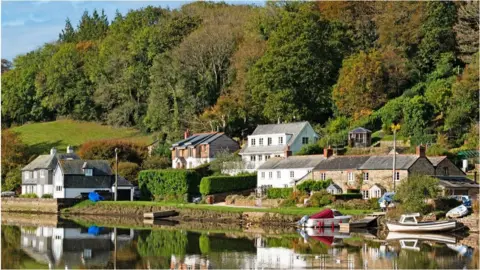 Getty Images
Getty ImagesThat may bring some relief to Bob McLaughlin, who had long-held plans to retire to the South West of England "aboard my little yacht".
He did make the move a few months ago, renting a flat in Devon while still working. "Prices have gone up noticeably," he says. "They are on the edge of my affordability."
Part of the reason for rising prices, he says, are people buying second homes in the region.
"It may price me out of the market, but it makes housing unaffordable for a lot of people," he says. In the end, it may mean price trumps lifestyle among those considering where they want to live.